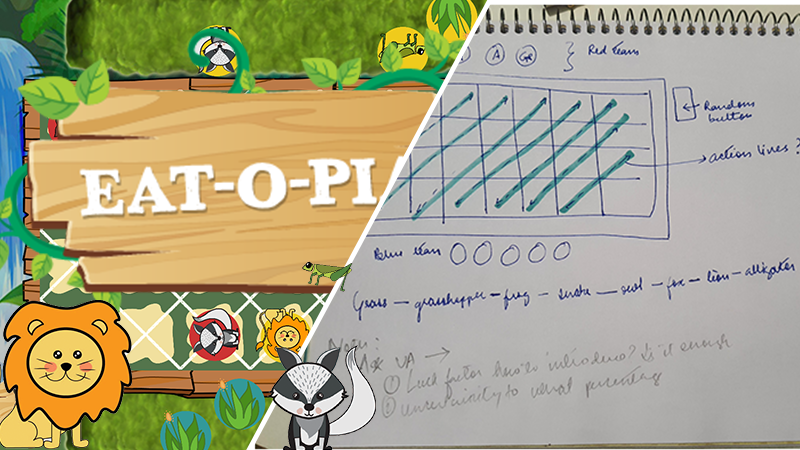Eat-o-pia - a multiplayer phy-gital game

INTRODUCTION
During our Game Design module at IDC School of Design, we – a group of four participants – wanted to explore the the usage of Games in sharing knowledge of Food chain through hybrid or phy-gital games. To complete our exploratory project were allotted a time period of 1 week.

DATA COLLECTION
For this project we decided to take the help of NCERT books (National Council of Educational Research and Training) designed for students of Central board of Secondary Education India, as our primary resource.

DESIGN PROCESS
During our design iterations, we tried to achieve these objectives through this project:

Objectives
- Nudge players to become aware of the energy flow within the within our environment.
- To help players to understand the interdependency of living organisms in an ecosystem.
- Foster an interactive environment among the players
Strategies adopted to achieve our objectives
- Before starting the game, players we given a poster containing comic strips of animals. The animals on the poster talks about what they like to eat and are eaten by.
- Once the game starts, players would attack – eat, the animals below their food chain hierarchy, and should skip/leave those above them.
- An option to see if animals in the same level of hierarchy could attack or eat their counterparts. This would be settled by a challenge in the physical words, such as Rock-paper-scissors.
FINAL DEMO and TESTING
Eat-o-pia is a multiplayer phy-gital game that combines online play with real-world interactions. Players compete in the game, using strategy and the laws of the food chain to survive as long as possible on the game globe. The final demo was developed for android and is available here for download .
We conducted a series of play tests with school children, of age group 8-14 years.




Please feel free to reach out if you would be interested in helping and collaborating with us in the project. :)
FIN.